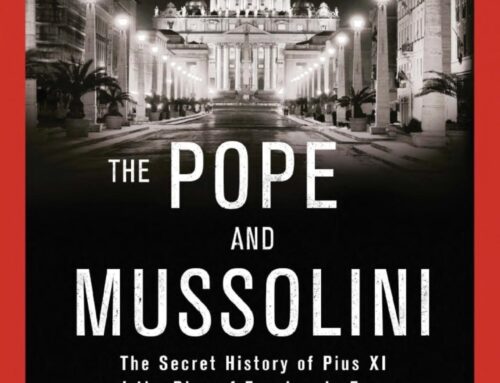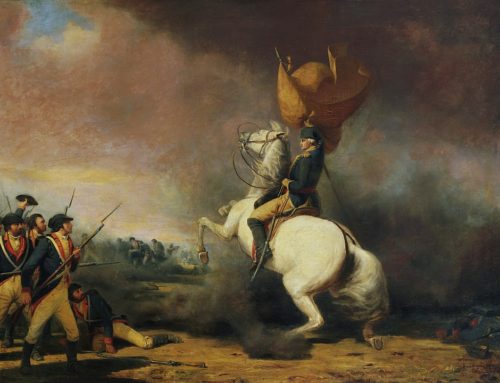Recently, when visiting our public library, I checked out a book devoted to Lincoln’s Second Inaugural. This speech along with the Gettysburg Address are considered to be two of the finest speeches in English ever delivered.
I thought it would be educational and challenging to spend time discussing it.
Background
The dreaded Civil War appeared to be ending. On the positive side, the Union was saved and slavery was abolished. From a negative perspective, some 630,000 Americans died (close to four percent of our population), millions more suffered grievous injuries, and much of the South was physically devastated.
Lincoln gave this speech some five weeks before he was assassinated. The preceding four years had been arduous. Leading our country during this calamitous war had been exacting. Furthermore, Lincoln had suffered grievous personal losses. One of his sons had died and several of his brother-in-laws died fighting for the Confederacy. The press had treated him harshly, subjecting him to countless personal abuses.
In brief, Lincoln like the country had suffered immense personal costs during his first term.
Overall Tone
Lincoln was anxious that the South be reunited without exacting cruel retribution. He understood that punishing citizens in the rebellious states would lead to perpetual scars and possibly guerrilla insurrection.
Contrary to prevalent attitudes, Lincoln argued that God’s will cannot be easily discerned. He pointed out the evil of Slavery had national origins and was not merely sectional. Specifically, Yankee merchants profited from the Slave trade. Therefore, God had exacted punishment to the overall nation.
Conclusion
Lastly, Lincoln entreated the Nation to have “malice toward none, and charity for all.” By such humane actions, the North would be following the injunction of Jesus.
Fellow-Countrymen:
AT this second appearing to take the oath of the Presidential office there is less occasion for an extended address than there was at the first. Then a statement somewhat in detail of a course to be pursued seemed fitting and proper. Now, at the expiration of four years, during which public declarations have been constantly called forth on every point and phase of the great contest which still absorbs the attention and engrosses the energies of the nation, little that is new could be presented. The progress of our arms, upon which all else chiefly depends, is as well known to the public as to myself, and it is, I trust, reasonably satisfactory and encouraging to all. With high hope for the future, no prediction in regard to it is ventured.
In this first paragraph, Lincoln summarizes the brief history of the Civil War. He conveys to the audience his optimism that the Union should prevail without specifying an end to the conflict. Lincoln worries that guerrilla insurrections should persist in the South
On the occasion corresponding to this four years ago all thoughts were anxiously directed to an impending civil war. All dreaded it, all sought to avert it. While the inaugural address was being delivered from this place, devoted altogether to saving the Union without war, insurgent agents were in the city seeking to destroy it without war—seeking to dissolve the Union and divide effects by negotiation. Both parties deprecated war, but one of them would make war rather than let the nation survive, and the other would accept war rather than let it perish, and the war came. 2
In the second paragraph, Lincoln argues that the North responded to the South’s insurrection. However, his tone is a moderate one. In every sentence, Lincoln uses the word war or uses pronouns that refer to it. Simply stated, Lincoln shared with the audience his recognition that the primary mission in his first term was waging war to preserve the nation.
One-eighth of the whole population were colored slaves, not distributed generally over the Union, but localized in the southern part of it. These slaves constituted a peculiar and powerful interest. All knew that this interest was somehow the cause of the war. To strengthen, perpetuate, and extend this interest was the object for which the insurgents would rend the Union even by war, while the Government claimed no right to do more than to restrict the territorial enlargement of it. Neither party expected for the war the magnitude or the duration which it has already attained. Neither anticipated that the cause of the conflict might cease with or even before the conflict itself should cease. Each looked for an easier triumph, and a result less fundamental and astounding. Both read the same Bible and pray to the same God, and each invokes His aid against the other. It may seem strange that any men should dare to ask a just God’s assistance in wringing their bread from the sweat of other men’s faces, but let us judge not, that we be not judged. The prayers of both could not be answered. That of neither has been answered fully. The Almighty has His own purposes. “Woe unto the world because of offenses; for it must needs be that offenses come, but woe to that man by whom the offense cometh.” If we shall suppose that American slavery is one of those offenses which, in the providence of God, must needs come, but which, having continued through His appointed time, He now wills to remove, and that He gives to both North and South this terrible war as the woe due to those by whom the offense came, shall we discern therein any departure from those divine attributes which the believers in a living God always ascribe to Him? Fondly do we hope, fervently do we pray, that this mighty scourge of war may speedily pass away. Yet, if God wills that it continue until all the wealth piled by the bondsman’s two hundred and fifty years of unrequited toil shall be sunk, and until every drop of blood drawn with the lash shall be paid by another drawn with the sword, as was said three thousand years ago, so still it must be said “the judgments of the Lord are true and righteous altogether.” 3
In the third paragraph, Lincoln discusses slavery. Lincoln puts forth the argument that slavery was the principal cause of the Civil War. He tries to point out that both the North and South share a common belief and faith in God. While Lincoln is critical that Southerners would believe that they enjoyed a divine right to enjoy the privileges of slavery, he states “Judge not that ye be judged.” This statement parallels Jesus’s orations. The reference to “wringing their bread from the sweat of another man’s faces” refers to Genesis. Specifically, Adam for the sin of eating the forbidden fruit must no longer live in the Garden of Eden, but must labor hard for his provisions.
Lincoln points out that while we cannot fully fathom God’s wishes, the cost of the Civil War borne by both sides appears to be God’s punishment for their shared responsibility for slavery. He asks that we remember “the judgments of the Lord are true and righteous altogether.”
With malice toward none, with charity for all, with firmness in the right as God gives us to see the right, let us strive on to finish the work we are in, to bind up the nation’s wounds, to care for him who shall have borne the battle and for his widow and his orphan, to do all which may achieve and cherish a just and lasting peace among ourselves and with all nations. 4
In the final paragraph, Lincoln beseeches the North “ with malice toward none, with charity for all.” He further refers to the bible when he asks the nation to “bind up the nation’s wounds, to care for him who shall have borne the battle and for his widow and his orphan.” Finally, he asks the North to impose a just and lasting peace.



